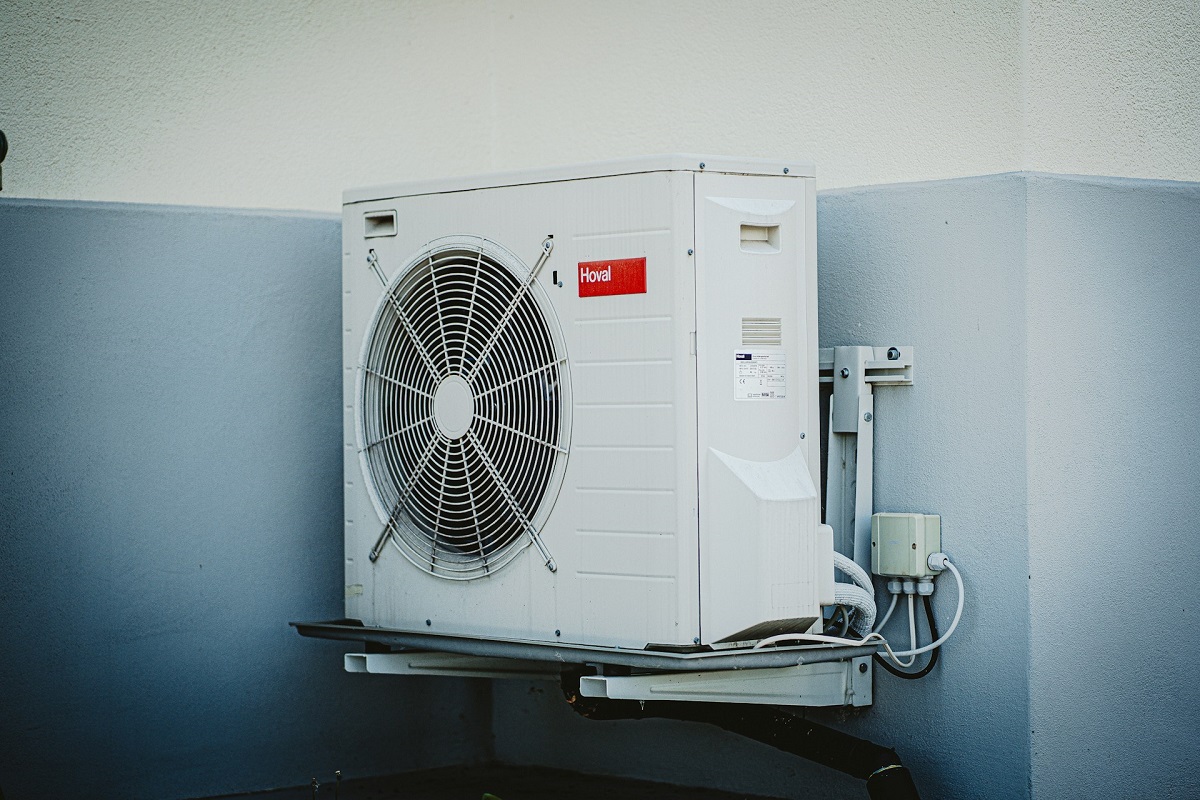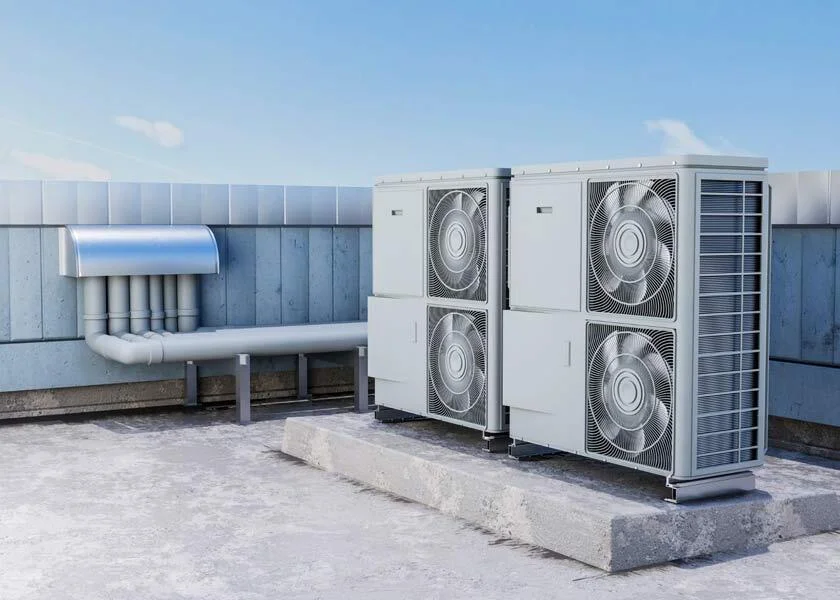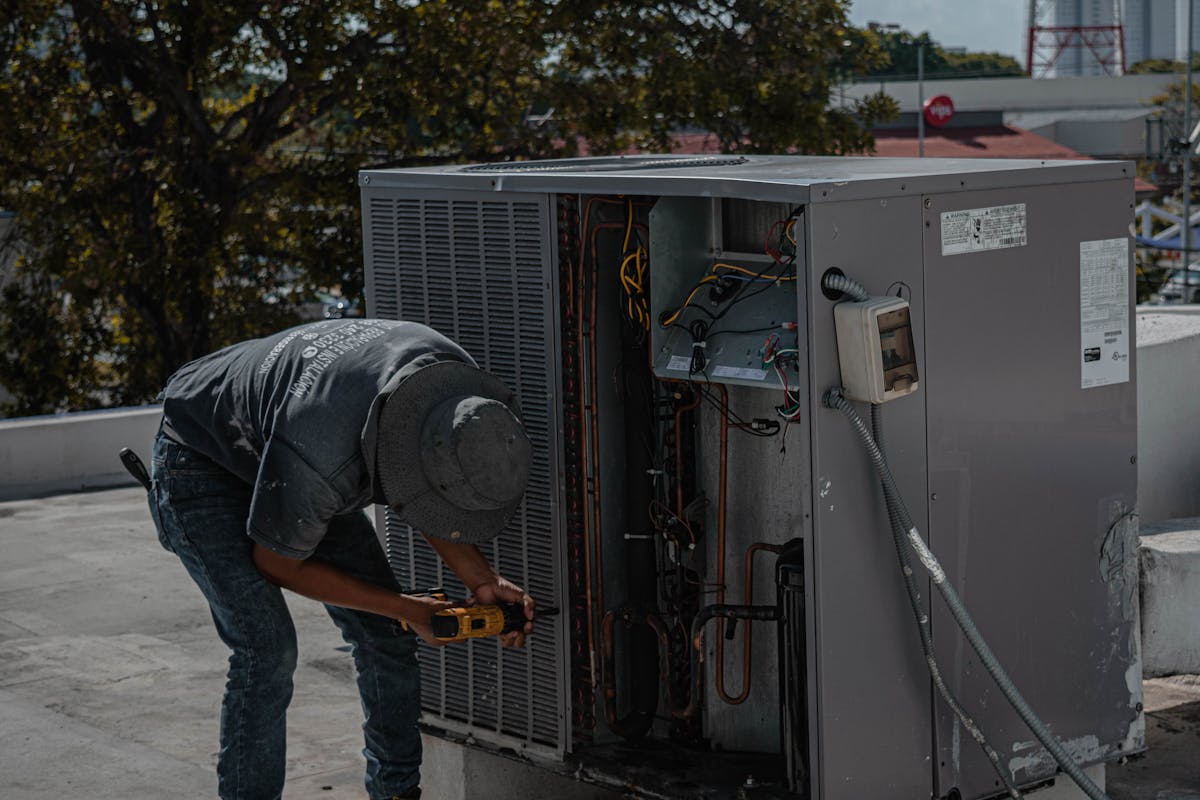
If you’ve ever noticed your lights flickering when you turn on your air conditioner, it’s important to know that it’s a pretty common issue. Still, it leaves a lot of homeowners wondering if their electrical system is on the fritz. Having a keen understanding of why your AC makes lights flicker will not only help you address the root cause of the problem but also the steps to take to prevent any other potential safety hazards.
That’s why today, we’re diving into the causes of your flickering lights, troubleshooting them, and other practical solutions that will make sure that your home’s electrical system is functioning efficiently.
Let’s get started!
Understanding Why the AC Makes Lights Flicker
A question that we get a lot is “Why does my AC make lights flicker?” The real answer lies in how your air conditioner uses electricity. There is a significant amount of power that surges to power up your air conditioner. This abrupt and sizable demand can cause a temporary drop in voltage, which ultimately causes your lights to dim or flicker.
At face value, this might seem like just a minor inconvenience, but if this continues to occur, it could be an indication of underlying issues in your electrical system. When it comes to troubleshooting flickering lights with AC use, if the problem isn’t addressed early, it could lead to damaged wiring or compromised appliances.
Common Causes of Flickering Lights with AC Use
The first step in resolving the problem is understanding the root cause. Let’s start with some of the most common reasons that the AC makes lights flicker:
Electrical Load Imbalances
If you’re the owner of an older home, you probably have an electrical system that wasn’t designed to handle the demands of modern appliances. That said, when your AC makes lights flicker, it’s usually a sign that the electrical load is not being distributed evenly which, ultimately puts a strain on your home’s wiring.
Voltage Drops During Startup
AC systems draw a huge amount of power during their startup. That surge can contribute to a temporary voltage drop, which can lead to your lights flickering. It’s important to note that while some flickering might be normal, excessive amounts of flickering are a signal that your home’s voltage regulation is having problems.
Loose or Faulty Connections
If you have any loose or faulty connections in your electrical system, the flickering in your lights being caused by the AC might be amplified. Make sure that you are having this problem addressed promptly for both your safety and the performance of your system.
Overloaded Circuits
If there are a multitude of appliances that are all sharing a circuit with your AC, you’re at risk of overloading said circuit. This overloading can cause your lights to flicker whenever your air conditioner starts.
Troubleshooting Flickering Lights with AC Use
Now that you have a better understanding of the causes, it’s time to start troubleshooting! If your lights are flickering when your AC runs, start with these:
Observe the Flickering Pattern
Start by taking note of when and how often the light flickering is happening. Does it only happen when your AC starts? Is it happening consistently or intermittently?
Inspect Bulbs and Fixtures
It’s important to rule out the small stuff like loose lightbulbs or obsolete light fixtures before you get into more complicated troubleshooting tactics.
Examine the AC Unit
If you’re experiencing a sluggish start-up or weird noises coming from your air conditioning unit, that could be an indication that it’s time for a maintenance call. Regular service will keep your system from straining your electrical system unnecessarily.
Seek Professional Help
Is the problem persisting? Make sure that you contact your electrician or HVAC tech. They’ll be well-equipped and experienced in diagnosing where the issue lies.
Practical Solutions for Flickering Lights
When you focus on the root cause of flickering lights, not only will you be elevating the safety in your home, but the efficiency of your HVAC system as well. Here are some solutions we’ve found effective:
Install a Dedicated Circuit for Your AC
A very simple way to mitigate this problem is to make sure that your air conditioner has its own devoted circuit. That way, you’re able to lessen the impact of your AC’s electrical demands on all of the other appliances in your home.
Upgrade Your Electrical Panel
If your home’s electrical panel is old, it is probably struggling to handle all of the power surges that modern AC units may cause. If you upgrade your electrical panel, you can count on stability when it comes to your power flow and alleviate your flickering lights.
Add Voltage Regulators
Voltage regulators will help to iron out any fluctuations in your electrical system so that your lights will remain constant and steady when your AC starts.
Schedule Routine Maintenance
Both your HVAC system and system and your home’s electrical wiring will stand to benefit from routine maintenance checkups. Regular maintenance will give you peace of mind that your system is running properly and preventing problems like flickering lights and short lifespans on appliances.
Why Routine Maintenance Matters
When you are proactive in scheduling your regular routine HVAC maintenance, you are taking active steps to make sure that your system is rubbing smoothly and isn’t negatively impacting or being affected by your home’s electrical system.
If you want to address what makes AC lights flicker, please understand that your maintenance plays a crucial role. Neglecting to have maintenance conducted is costly. It can exacerbate your problems the longer your inspections are put off.
Are you having issues with your lights flickering because of your AC? The Optimum Air Solutions team can help you with that! We specialize in all things HVAC and work with our clients closely to understand all of their heating and cooling needs.
Are you ready to schedule your routine HVAC maintenance? Click here to get in touch with our team of experts! We’ll have you breathing easy in the Big Easy in no time.
continue reading
Related Posts
There’s a simple truth when it comes to your HVAC
“Efficiency isn’t just about comfort. It’s about cost and resale.”
“An ounce of prevention is worth a pound of cure.”






